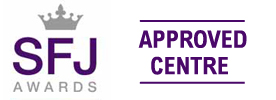Module 12
Reporting Procedures
- previous page
- previous page
- previous page
- Use the mnemonic ROTA - Relevance, Objectivity, Thoroughness and Accuracy.
- Relevance. Only information pertinent to the investigation and its result should be included. Irrelevancies confuse the reader, and if the person reading the report is likely to take action over its content, then that action must be based on as full an understanding of the report, and not on side issues. Relevance may be influenced by the nature of the incident under investigation, and therefore by the requirements of the client when the investigation started. Care should therefore be taken to ensure that the fullest briefing has taken place prior to the start of the enquiry.
- Objectivity. Avoid expressing opinions other than those that are based on expertise. That is not to say that opinions as to the strength of evidence should be avoided, as these will help the reader in determining the usefulness of the evidence discovered. Opinions as to character, honesty and integrity of individuals must be avoided.
- Thoroughness. All evidence and information discovered in the investigation should be included, that which supports the case, and that which undermines it. A report writer will not know everything that the reader or counsel will need to know, so it is even more important that as much detail as can be included, is included.
- Accuracy. Only facts should be stated. Ideally they should all be corroborated or substantiated. Times and dates must be accurately stated, as they can be surprisingly important. It may be advisable in some cases to detail the weather, road conditions, lighting, etc, even though their immediate relevance is unclear.
- Paragraphs should be short, and the content designed to make the point quickly. If a particular point is likely to give rise to debate at court this makes it easier for counsel to see the point raised, rather than having to find it amongst less relevant material.
- If the report is to be presented in a compartmentalised form - that is, with sections that have a different focus with regards to the content - then an index should be provided.
- If commentaries are to be used by the investigator, these should be provided in a clearly different typeface than the remainder of the report, and a declaration made to this effect at the head of the report. For example: "Commentaries by the investigator are made in bold typeface, and should not be taken as fact unless explanation suggests otherwise."
- If reference is to be made to other documents, it would be best practice to include copies of those documents. Such documents can, of course, have pertinent points made clear through use of a highlighter pen. Reference as to their location should be included.
- The writer should avoid commentaries or observations that are self-promoting
- The report should be presented in a manner that makes it easy to read. Double spacing of text allows the reader to follow the report more easily, and will allow legal representatives to make comments and notes within the body of the report.
- It should be remembered that the quality of that report will have an influence on the reader's opinion of that investigator. Such an opinion will influence the quality of the communication between writer and reader at all levels, and will enhance the ability of the investigator to influence furtherance of the case under investigation.
- When submitting a report in connection with legal proceedings, and when that report is strictly for counsel's information, it is advisable to head the report/letter 'Legally Privileged', thus ensuring that the content is not inadvertently disclosed to parties that the writer did not intend should see it. Use of privilege is not confined to those practising law; those using law can make use of its protection as well.
Compliance with these general rules, allied to the specifics identified post should result in the compilation of high quality reports. In addition, the mark of a comprehensive and well-written report is that further lines of investigation or the need for tightening up of procedural errors can be discovered during the report writing process. This can prevent embarrassment at trial, or prevent the need for the trial at all.
Page: 3
Module: 12




